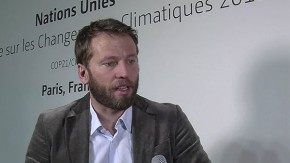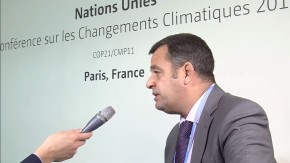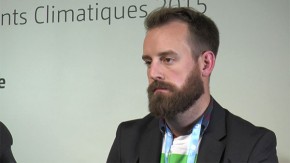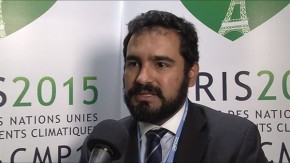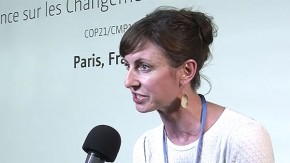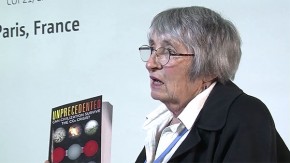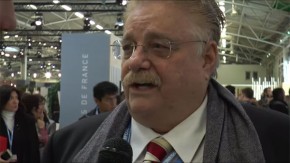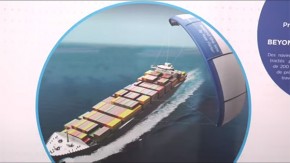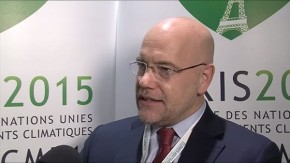The role of the Tyndall Centre for Climate Research at COP21 is to represent their research which covers a lot of the questions that are being debated politically, from a science point of view. Traut’s own research focuses on international shipping. He explains that international shipping emits 1 gigatonne of carbon annually, representing 2-3 % of the global total. His research tries to tackle the questions of how to reduce and decarbonise this sector. As shipping is regulated on the international level by the International Maritime Organisation policy negotiations are closely linked to the UNFCCC. Currently shipping and aviation do not feature prominently in the INDC’s, and whilst it has been mentioned in the draft negotiating text, it is still an open question whether shipping and aviation will make it into the final agreement. Traut explains that shipping companies have fuel efficiency on their agenda to some degree which by default result in reduced emissions, their incentive for sustainability in the sector is driven from a business perspective and fuel savings do not go far enough. Ultimately a fair and equitable policy has to play an important role in decarbonising this sector.
